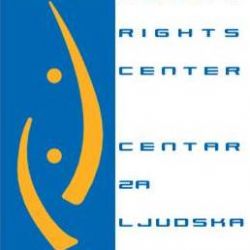Integrating human rights and the concept of civil society in Croatian educational system, had its broad discussions in Croatia. NGO sector is forcing the topic for quite a while now, while media use it only in the context of HIV-positive girls or education of Roma children. Having in mind that, Center for Human Rights in Zagreb has conducted an assessment “Human Rights in Elementary Schools – Theory and Practice”.
The assessment was conducted in 24 Croatian elementary schools (using the method of anonymous questionnaires) which are the representative sample of Croatia. The assessment consists of opinions and standpoints of pupils, teachers, headmasters and parents in city and rural areas in 6 main Croatian regions.
The assessment was conducted and implemented by expert team in education, human rights and statistics: Tomislav Reskovac, Vedrana Spajic Vrkas, Benjamin Culig, Ivana Batarelo and Jagoda Novak, and the process of textbooks analysis was done in cooperation with number of associates, researches and field researches.
Using the method of textual analysis, the team had worked on textbooks of subjects: biology (nature and society), Croatian language, history and religion, throughout all eight years in elementary school. Main strategic documents which represent the framework of elementary education in Croatia, were also analyzed from the point of democratic citizenship and human rights.
The main aim of the assessment, was to determine to what measure and in what way, elementary schools in Croatia teach about democracy and human rights, how much the educational system in Croatia promotes and function in democratic standards and human rights values.
According to the results of the research:
-
All actors in the educational system: parents, pupils, teachers and headmasters pay great attention to the importance of education on democratic citizenship and human rights in all its aspects, while great majority of them considers that with that aspect, one should start as of kindergartens;
-
Great majority of pupils, teachers, headmasters and parents also reckon that education on democratic citizenship and human rights, with special focus on peace and non-violence, needs to be more intensively taught in elementary schools;
-
Adopting changes should not only be a part of school norm, but should become a part of school culture: stronger and more systematic engagement of pupils, parents and teachers in the process of decision-making in schools, consultations with headmaster, teachers and parents on the process of educational reforms, changes in models of teaching etc.
If Croatia wishes and aims to have a society of responsible citizens that know their rights and rights of another, procedures of how to achieve those rights, and if Croatia wants the society with less violence and corruption as forms of social manipulation, it is time then for decision makers to direct the educational system to education on democracy and human rights values. Otherwise, it is not for a surprise to have in up-coming time, non-democratic points of view and violent behavior of the young people and adults-to-be in this country.
Full article on the results of the analysis of textbooks in elementary schools in Croatia, and to what level they promote democratic and human rights values, is written by Jagoda Novak, the expert team member, and is available for download.
Documents:
- Analysis of Croatian Textbooks
In Croatian





